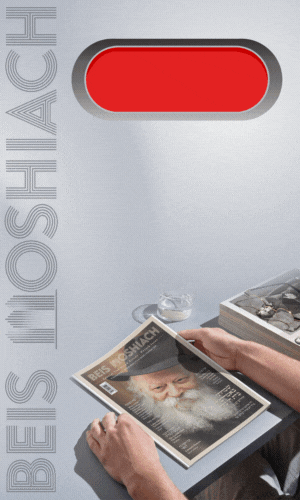The Rebbe’s Opinion On: Who Is Authorized To Teach Kabbalah?
Chabadinfo in collaboration with Beis Moshiach Magazine presents: The Rebbe’s Opinion On, a series featuring the Rebbe’s opinion and directive on various subjects • In 5729 (1969), a young woman sent to the Rebbe an English translation of a work originally appearing in French in the sphere of Kabbalah, apparently asking the Rebbe’s opinion whether to publish it. Below is the Rebbe’s fascinating response • Full Article
In 5729 (1969), a young woman sent to the Rebbe an English translation of a work originally appearing in French in the sphere of Kabbalah, apparently asking the Rebbe’s opinion whether to publish it. Below is the Rebbe’s fascinating response:
With an apology for the delay, I come to acknowledge the regards I received before Pesach, together with an English translation of work originally appearing in French in the sphere of Kabbalah.
One of the reasons for the delay was my desire to take a glimpse at this work in order to obtain at least some idea of the author’s approach, etc. However, in order to be honest with myself and candid with you, I must confess that from the start I already prejudged my conclusion. The reason for my “prejudice” in regard to this type of literature is this: Torah, in general, usually goes with mesorah (tradition) and it cannot be truly understood and grasped, if it is studied in a detached way, but only if it is realized that Torah and mesorah are indivisible. It does not otherwise lend itself to be grasped by the human intellect. Moreover, the traditional dimension involved here is not to be understood in a theoretical sense, namely being confined only to intellectual scrutiny, but must be a factor in the daily life and conduct of the person who wishes to interpret the Torah. To be sure, every Jew is duty bound to study the Torah regardless of his conduct, but it is quite different when a person presumes to consider himself an authority to interpret the Torah to others.
If the above is true in relation to Torah in general, it is particularly true in relation to that part of Torah which is called Kabbalah. As the term implies, it means, among other things, that in addition to the above mentioned prerequisite, its interpretation is further limited to such persons who have received (the literal meaning of Kabbalah) this discipline and tradition in a personal way of disciple and teacher and so forth, back to a source of a teacher who was most trustworthy in having authentically received and transmitted it.
In light of the above, I would naturally be most wary of any attempt to interpret Kabbalah by any person who does not come under the above mentioned qualifications, regardless of what point of view he represents, or to what group he addresses himself.
… After all the long prefatory remarks above, I am impelled also to add one more, in order to explain my “prejudice” to this type of literature. I am referring to the fact that the teachings of Chasidus include many aspect[s] of Kabbalah, Chasidus being connected with Kabbalah. Furthermore, Chasidus is available in our time in such a clear way that it requires very few commentaries and footnotes. Thus it is in our time the best and most practical source of knowledge in the realm of Kabbalah. This circumstance makes the usefulness of the work under discussion even more questionable.
All my objections notwithstanding, and in view of the fact that the said book was sent to me by you, and I assume that you have read it as also your friends, and would like to hear my opinion, I took some time out to glimpse through some sections of the work by way of samples. And having done this, my original view, as outlined above, had further been confirmed. Consequently, if the purpose of your sending me this copy is to receive my opinion as to whether it ought to be printed and published, I must say that I do not think it worthwhile, because of the reasons stated above.
At the same time, I would like to express my hope and wish that the translator and his colleagues who have put in so much effort into this work, would henceforth apply their efforts in the study, first of all, of the Torah itself, the so-called nigleh/revealed of Torah, the kind of study that leads to actual practice, since this is the way to obtain a deeper knowledge of pnimius of Torah. The latter must come as a second stage of study, and it should be studied from classical and authentic books and sources.
Reprinted from The Letter and The Spirit Vol. 4, letter # 264
72
Join ChabadInfo's News Roundup and alerts for the HOTTEST Chabad news and updates!











































